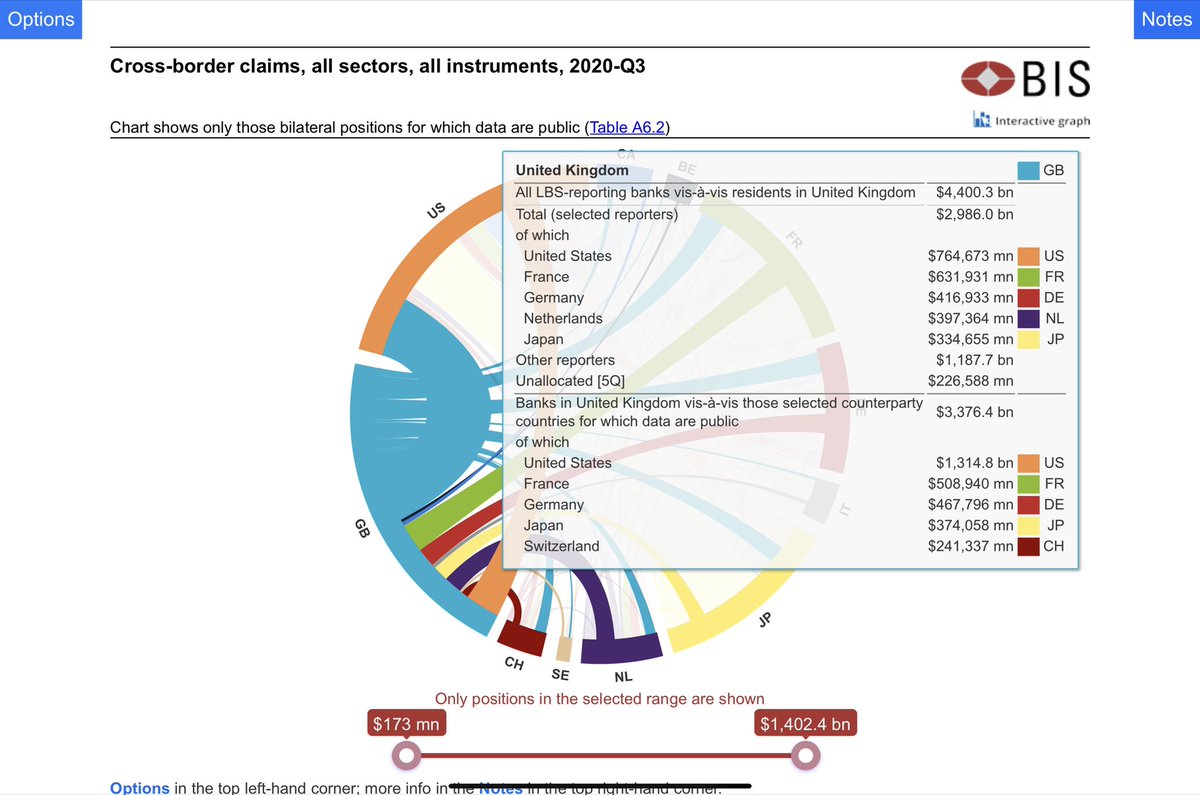
Thanks to colleagues at LBS for the opportunity to take stock of the decentralisation agenda in digital finance, from #bitcoin to #DeFi
A thread on the key points:
bis.org/speeches/sp211…
A thread on the key points:
bis.org/speeches/sp211…
https://twitter.com/BIS_org/status/1461053785778888710
Blockchain has breathed new life into the idea of money as a substitute for a ledger that keeps score of who owes what to whom
"Money is memory" according to the classic 1998 by Narayana Kocherlakota
minneapolisfed.org/research/sr/sr…
"Money is memory" according to the classic 1998 by Narayana Kocherlakota
minneapolisfed.org/research/sr/sr…
#DeFi, or decentralised finance, is the latest manifestation of this idea where the ledger is much more elaborate than simply keeping score of who pays whom
The idea of everyone lugging around a huge ledger was used as a theoretical construct, not to be taken literally
But the tables have turned; cryptography and digital technology have made the ledger a reality through blockchain technology
But the tables have turned; cryptography and digital technology have made the ledger a reality through blockchain technology
Forging consensus on the one true history is the big achievement of the blockchain; the system is self-sustaining as an equilibrium of a game
When others are following the protocol, it's in each validator's interest to do so, too
bis.org/publ/work924.h…
When others are following the protocol, it's in each validator's interest to do so, too
bis.org/publ/work924.h…

Scalability is a well-known problem in this context, but it's important to distinguish two notions of scalability
The first is the time taken to achieve consensus among a large number of validators
This is a technological issue and is limited by the laws of physics
This is a technological issue and is limited by the laws of physics
The second are the limits imposed by the need to reward validators to do the right thing
This is about incentives and is limited by the laws of economics and game theory
This is about incentives and is limited by the laws of economics and game theory
The techological limits have various proposed solution - for instance, #sharding
vitalik.ca/general/2021/0…
vitalik.ca/general/2021/0…
But it turns out that the economic limits are more intractable, especially if the aim is to get a high degree of consensus that maintains the security of the blockchain
bis.org/publ/work924.h…
bis.org/publ/work924.h…
At its most basic, the validators face a pubic good contribution game
The validators contribute to the provision of a public good that benefits all - in this case, a clean reconciled ledger that everyone can sign on to
The validators contribute to the provision of a public good that benefits all - in this case, a clean reconciled ledger that everyone can sign on to
But the reward to the validator has to be high enough
Rents are an inevitable consequence of decentralisation; the higher the standard of consensus, the higher the rent needed
Rents are an inevitable consequence of decentralisation; the higher the standard of consensus, the higher the rent needed
So, a sign of a well-working blockchain protocol is how much rents accrue to insiders
I discussed three examples in my presentation
I discussed three examples in my presentation
The first example comes from the recent paper by Makarov and Schoar who mapped the underlying economic structure of the #Bitcoin blockchain to shine a light into what's going on
personal.lse.ac.uk/makarov1/index…
personal.lse.ac.uk/makarov1/index…
The paper is a truly awesome piece of scholarship using AI to uncover the economic structure behind the anonymous addresses of the Bitcoin blockchain
The findings (my slide below) paint a picture that is far from the ideal of leveling the playing field and democratising money
The findings (my slide below) paint a picture that is far from the ideal of leveling the playing field and democratising money

My second example is Miner Extractable Value (MEV) in #Ethereum which gives the dollar value of the privilege of hitching the latest block in the blockchain
Since you can see which trades are waiting to be validated, there are many ways to profit
Since you can see which trades are waiting to be validated, there are many ways to profit

My third example of the high rents collected by insiders is the (still) very high transactions costs in #DeFi 

The transition from #Proof_of_work to #Proof_of_stake will, if anything, increase these rents to insiders; it will be a feature not a bug
All this is a far cry from the original spirit of the decentralisation agenda, which was about leveling the playing field and democratising finance
One question to close:
With inflows of new users, the high rents to insiders can be the "glue" that binds everything together in a self-sustaining way
But how strong will the glue be when the system matures, profits are squeezed and rents are harder to come by?
With inflows of new users, the high rents to insiders can be the "glue" that binds everything together in a self-sustaining way
But how strong will the glue be when the system matures, profits are squeezed and rents are harder to come by?
• • •
Missing some Tweet in this thread? You can try to
force a refresh









